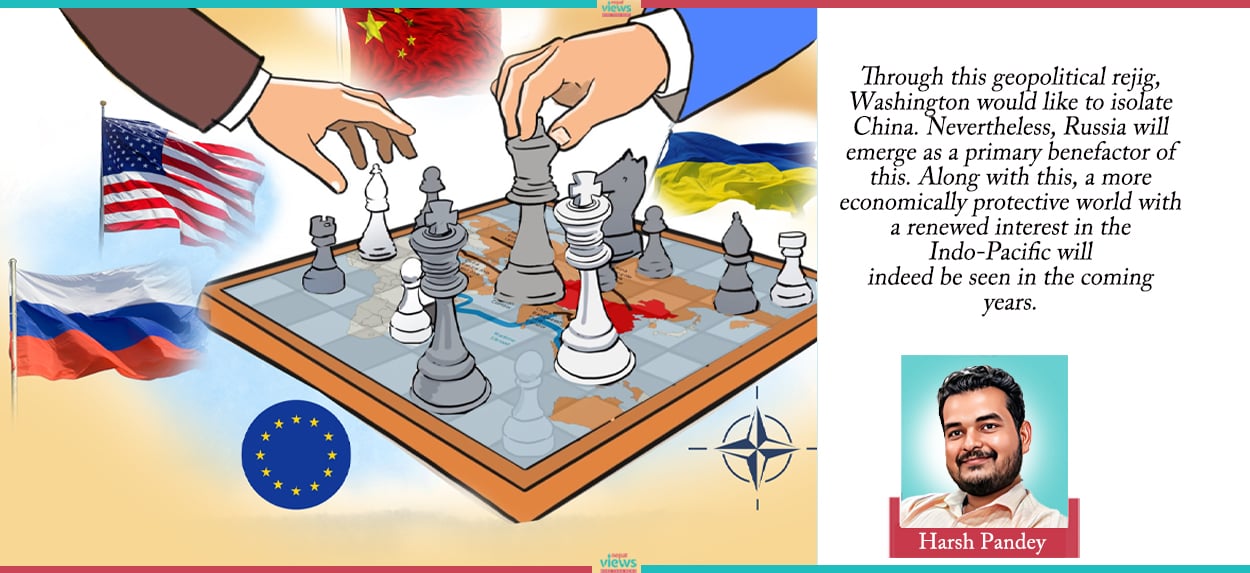Terry Pratchett was prophetic when he said, “There is a Curse. They Say: May you live in interesting times.” These times indeed are interesting as the last week of this year has redefined the global political order that the West has laid in the ruins of World War II.
Realpolitik has taken a front seat in the rapprochements between the United States of America and Russia. After the end of the Cold War, the USA’s policy was driven by ideological contours of promoting democracy and hegemonic enthusiasm developed after winning the Cold War.
Nevertheless, 35 years later, the reality has changed pretty much. The world is not ‘unipolar’ as it once was. It is definitely multipolar, with the USA wielding significant influence across the globe. When Russia invaded Ukraine in 2022, it was meant to be a non-draining exercise for the Russian military forces.
However, with the help of the West and the USA, Ukraine is still in the fight despite Russia’s capture of almost all of its 1/5th lands. It became possible because of the Western support for Ukraine and their promise for Ukraine’s entry into NATO and the EU. Three years later, nothing happened.
On the one hand, Russia faced significant financial ramifications because of the war, where most of its economy had been sanctioned by the West. It resorted mainly to its partners in Asia, particularly China and India, to get its economy going. In this relationship, Russia, stranded in a war of attrition, has been dependent on China for many of its needs, given that China has been a manufacturing hub for so many decades. It also tilted the stronghold in China’s favour.
To cite an example, in 2023, Russian exports to China amounted to 30 percent of total Russian exports, on the other hand, Chinese exports to Russia amounted to only 3 percent of Chinese exports.
Similarly, imports from China accounted for 36 percent of Russia’s total imports in 2023, and China’s imports from Russia amounted to close to 5 percent of its total imports.
The changing geopolitical realities, access to newer markets, and possible ending of the war will have a significant impact on China. It will be interesting to see how a realignment of the global political landscape driven by the Russia-US rapprochement will impact China.
Oli’s Chinese Detour: Implications on Domestic and Geopolitical Landscape
An asymmetric power dynamic has characterised the relationship between China and Russia for the majority of the last ten years. Russia was subject to extensive Western sanctions after annexing Crimea in 2014, which severely damaged its economy.
As a result, Moscow was compelled to go to Beijing, which voluntarily provided a vital economic lifeline. China increased yuan-based trade transactions, expanded its influence in important Russian businesses, and secured cheap oil and gas agreements by taking advantage of Russia’s vulnerabilities. Beijing thereby became the dominant party in what had been an equal strategic partnership.
However, the extent of Russia’s reliance on China may alter if it starts to mend its ties with the US and Europe after the Riyadh meeting. Russia would have more diplomatic freedom and be less inclined to ally itself so closely with Beijing if it were to make amends with the West.
Moscow may take advantage of this chance to rebalance its foreign policy since it has historically been cautious about becoming too dependent on China. Russia might recover the influence it had previously given to China by broadening its economic alliances, re-establishing trade relations with Europe, and gaining access to Western financial markets.
Beijing will no longer have the advantage of being Russia’s economic benefactor if Russia regains access to Western markets. China may have to pay more for energy as a result, have less access to vital Russian resources, and be less able to utilize Moscow as a buffer against pressure from the West.
The capacity of Washington to shift its strategic attention to opposing China would be among the most direct effects of a US-Russia compromise over Ukraine. The United States has committed significant military and diplomatic resources to defend Ukraine against Russian aggression since the crisis began in 2022.
China has been progressively increasing its influence in the Indo-Pacific, but this commitment has diverted focus from that region. Due to the continued Ukrainian strategic diversion, China has been able to operate in critical geopolitical areas with a degree of freedom. Through its Belt and Road Initiative, it has strengthened economic relations, expanded diplomatic ties with countries in Africa, Latin America, and the Middle East, and continues to militarise the South China Sea.
However, Washington will be able to return its attention to thwarting China’s regional aspirations if a peace agreement in Ukraine enables the US to reduce its role in Eastern Europe.
Ja Ian Chong, associate professor of Political Science at the National University of Singapore, was quoted in The Financial Times saying, ‘There have been, at least with PRC academics, some concerns about some sort of ‘reverse Nixon.’ Reminding the policy of Richard Nixon to repair its relationship with China in the 1970s to put pressure on the Soviet Union.
Through this geopolitical rejig, Washington would like to isolate China. Nevertheless, Russia will emerge as a primary benefactor of this. Along with this, a more economically protective world with a renewed interest in the Indo-Pacific will indeed be seen in the coming years.
(Harsh Pandey is a PhD Candidate at the School of International Studies, JNU, New Delhi)











